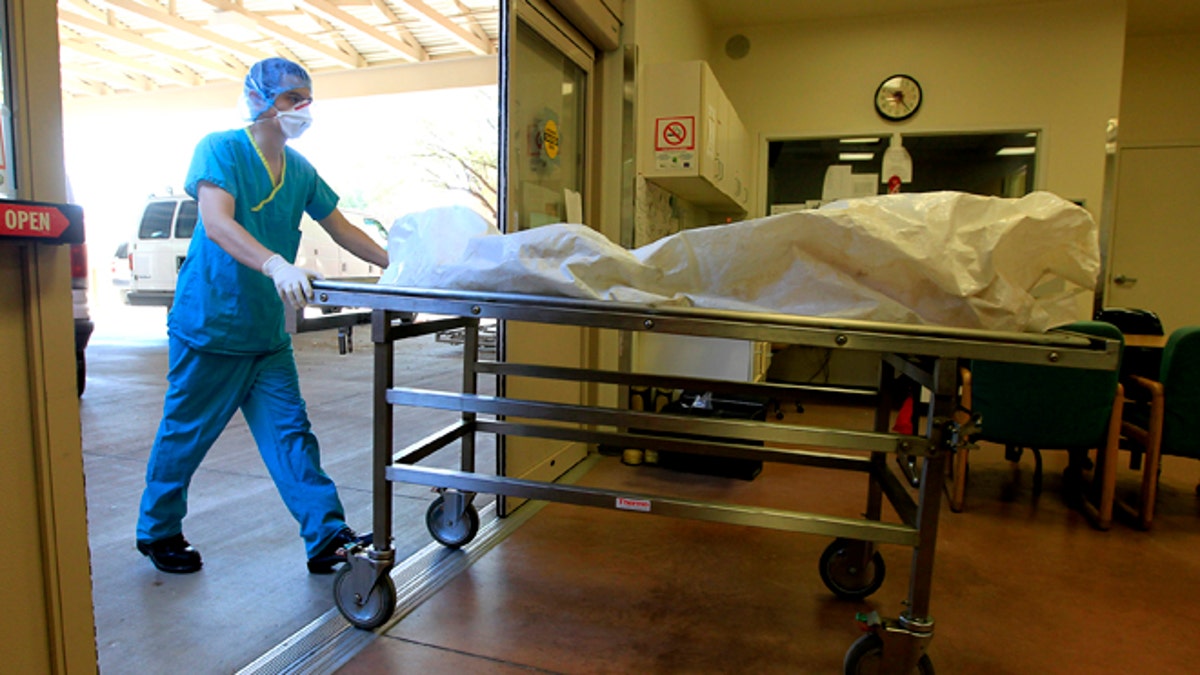
Aug. 10, 2012: In this photo, a morgue staff member brings in the body of a suspected illegal immigrant found in the Arizona desert, at the Pima County morgue in Tucson, Ariz. (AP)
Medical mysteries lurk in every family, yet the autopsies that could reveal them have become increasingly rare.
Although coroners and medical examiners still investigate suspicious deaths, fewer than 5% of people who die in hospitals are autopsied today, down from 50% in the 1960s, according to government surveys. The decline in autopsies has slowed scientific advances in diseases including cancer, dementia and heart disease, researchers say. It also has left some surviving families in the dark about medical issues that could affect their own health.
Studies routinely show that when autopsies are performed, 10% to 30% reveal previously undiagnosed medical issues. Such discoveries can provide valuable information to survivors even years later.
Sarah Friend was a seemingly healthy 12-year old when she suddenly collapsed and died at a water park in North Richland Hills, Texas, in 2004. An autopsy revealed she had hypertrophic cardiomyopathy, or HCM, a hereditary thickening of the heart muscle whose first symptom can be cardiac arrest.
The medical examiner urged Sarah’s family members to be checked for the disease. None showed signs of it at the time, but when a genetic test for HCM became available in 2008, Sarah’s mother, Laura, learned she is at risk and now gets her heart checked regularly. Mrs. Friend says her grandmother and uncle also died of heart problems, both without autopsies. “I keep wondering, could we have found this earlier?” she says.
The decline in autopsies has many explanations. Rules that required hospitals to autopsy 20% to 25% of deceased patients to maintain their accreditation were lifted in the 1970s. Neither Medicare nor private insurance cover autopsies, which can cost $2,000 or more. Grieving family members are often too upset to ask about it. And many doctors don’t suggest it, in part because they think modern imaging and lab tests have revealed all they need to know about a patient’s cause of death.
“We think we always know what’s going on inside our patients, but that’s a fallacy,” says Dylan Miller, who chairs the autopsy resource committee for the College of American Pathologists. “There’s as much to be gained from an autopsy as ever.”
